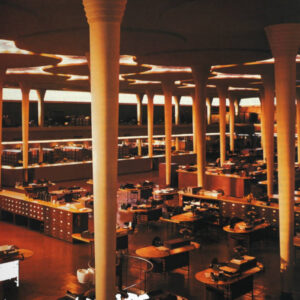
With VR home tours adoption 2025 at the forefront, the real estate landscape is on the brink of a major transformation. As technology continues to evolve, the way buyers and sellers engage with properties is changing dramatically, offering immersive experiences that were once unimaginable. Virtual reality is becoming a game-changer in the real estate market, creating opportunities that benefit all parties involved.
The adoption of VR home tours is expected to surge by 2025, driven by factors such as enhanced user experience, increased accessibility, and growing consumer demand for innovative solutions in property viewing. As buyers seek more engaging ways to explore homes, VR technology is set to redefine the traditional real estate process, making it more efficient and effective.
VR Home Tours and Their Adoption Rate by 2025
As we look towards 2025, the adoption of virtual reality (VR) home tours is expected to experience significant growth. With the real estate market continually evolving, technology plays a pivotal role in shaping buyer and seller experiences alike. VR home tours offer a unique way for potential buyers to view properties remotely, which can lead to faster sales and better-informed decisions.The expected growth in VR home tours is largely driven by several key factors.
Firstly, advancements in VR technology have made it more accessible and affordable for both real estate agents and consumers. Secondly, the ongoing global trend towards remote viewing in the wake of the COVID-19 pandemic has changed buyer behavior, with many consumers now preferring virtual tours as a convenient alternative. Finally, increased internet speeds and the proliferation of smartphones capable of supporting VR content have made it easier for users to engage with these innovative tools.The potential benefits of VR home tours for buyers and sellers are numerous.
Buyers can explore properties from the comfort of their homes, significantly reducing the time spent traveling between showings. Additionally, sellers can showcase their homes to a wider audience, reaching potential buyers who might not be able to visit in person. Overall, this technology enhances the property viewing experience, making it more immersive and informative.
Impact of VR Technology on Real Estate Investment
VR home tours are revolutionizing real estate investment strategies by providing a more interactive and engaging way for investors to assess properties. These virtual tours allow investors to visualize potential renovations, layouts, and the overall feel of a property, which can greatly influence their investment decisions.Moreover, VR technology plays a crucial role in attracting investors to specific properties. With immersive experiences, potential investors can build a connection with the property, increasing their likelihood of making an offer.
Case studies illustrate the success of VR in real estate investments; for instance, properties showcased through VR tours often see a higher rate of inquiries and conversions compared to traditional listings.
Current Trends in the Real Estate Market
The real estate market is currently witnessing several trends influenced by technology. One of the most notable is the integration of digital tools, such as VR and augmented reality (AR), which are being used to market properties more effectively. Emerging technologies like drone photography, AI-driven analytics, and online property platforms are reshaping how properties are marketed and sold. These technologies enhance the visual appeal of listings and provide valuable data to both buyers and sellers, making the entire process more transparent and efficient.Consumer preferences are also evolving within the real estate sector, with a noticeable shift towards more interactive and engaging property viewing experiences.
Buyers increasingly favor virtual tours and online consultations over traditional methods, prompting real estate agents to adapt their strategies accordingly.
Integration of Smart Home Technologies
As smart home technologies become more prevalent, their integration with VR home tours offers an exciting opportunity for showcasing properties. Smart home features, such as automated lighting, smart thermostats, and security systems, can be highlighted during VR tours to demonstrate the convenience and efficiency they bring to homeownership.A list of smart home features that can be effectively showcased in VR tours includes:
- Smart lighting systems that can be controlled remotely
- Energy-efficient smart thermostats
- Home security cameras and alarms
- Smart locks and access control systems
- Home automation hubs integrating multiple devices
Insights into consumer demand for smart home capabilities reveal that modern buyers are increasingly seeking properties that offer these features. The growing trend reflects a desire for convenience, security, and energy efficiency in home living.
Commercial Real Estate and VR Adoption
When comparing the adoption of VR technology in commercial real estate versus residential markets, the former is witnessing a slower but steady integration. VR applications in commercial property sales and leasing include virtual tours for office spaces, retail environments, and industrial facilities, providing potential tenants and buyers with a detailed view of the space without needing to visit physically.The implications of VR technology on commercial real estate marketing strategies are significant.
Virtual tours can enhance the marketing of commercial properties by offering detailed views that help businesses visualize their operations in the space. This level of engagement is particularly valuable in competitive markets where attracting tenants is crucial.
The Luxury Homes Market and VR Experiences
VR technology holds a unique significance in the marketing of luxury homes, offering potential buyers an unparalleled viewing experience. High-end properties utilizing VR tours can engage buyers more effectively, as immersive experiences allow them to appreciate the fine details and craftsmanship of luxurious listings.Examples of luxury properties leveraging VR tours include sprawling estates with lavish amenities and penthouses boasting panoramic views.
These immersive experiences not only showcase the property but also create an emotional connection with potential buyers.The perception of luxury real estate offerings can be elevated through VR experiences, as they capture the essence of a luxury lifestyle. By providing prospective buyers with a virtual taste of high-end living, sellers can enhance buyer engagement and drive interest in their listings.
Future Projections for Luxury Real Estate with VR Technology

Looking ahead to 2025, the impact of VR on the luxury real estate market is anticipated to be transformative. As technology advances, it is likely that a greater number of luxury properties will incorporate VR tours as a standard part of their marketing strategy.Predictions on consumer behavior changes in luxury home buying indicate that the convenience and immersive experiences provided by VR will influence buyer expectations.
Luxury real estate agents can leverage this technology for a competitive advantage by providing unique, memorable experiences that set their listings apart from others.In conclusion, the integration of VR technology in the luxury real estate sector is poised to enhance the overall buying experience, making it more engaging and informative for potential buyers.
Conclusion
In summary, the future of real estate is being shaped by the adoption of VR home tours, which promise to enhance buyer engagement and streamline sales processes. As we look ahead to 2025, the integration of VR technology is likely to influence not only consumer preferences but also the strategies employed by real estate professionals. This exciting evolution invites us all to rethink how we view and sell properties, creating a more dynamic and interactive market.
FAQs
What are VR home tours?
VR home tours are immersive virtual experiences that allow potential buyers to explore properties remotely using virtual reality technology.
How do VR home tours benefit sellers?
Sellers can showcase their properties to a broader audience and create a more engaging experience for buyers, potentially leading to quicker sales.
Are VR home tours expensive to implement?
The costs can vary, but advancements in technology are making VR solutions more affordable for real estate professionals.
Can VR tours help in selling luxury homes?
Yes, VR tours are particularly effective for luxury homes as they create an exclusive and high-end viewing experience that attracts affluent buyers.
Will VR home tours replace in-person viewings?
While VR tours provide a valuable preview, they are likely to complement rather than completely replace in-person viewings, as many buyers still prefer to visit properties physically.





